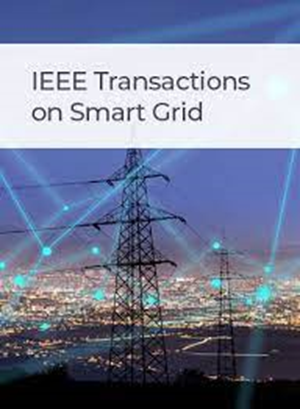Transportation-Energy-Communication Integrated Management of Ship Cyber-Physical Systems Against Cyber Attacks
IF 9.8
1区 工程技术
Q1 ENGINEERING, ELECTRICAL & ELECTRONIC
引用次数: 0
Abstract
Ship cyber-physical system (SCPS) is a complex system that integrates advanced information and communication technology to achieve efficient energy management and navigation plans. Thus, SCPS is susceptible to cyber attacks due to increased exposed attack surfaces, which poses significant risks to power and navigation management. The interdependence among the navigation, power, and communication management might amplify the impacts of cyber attacks to induce cascading failures. However, the existing research lacks a robust systematic strategy against cyber attacks considering interdependence features. Therefore, this paper proposes a transportation-energy-communication integrated architecture to collaboratively optimize navigation planning, power management, and networking scheduling. The network model integrates time-sensitive networking (TSN) to improve data transmission reliability and determinacy against cyber attacks. Based on the architecture, the impacts of two typical types of cyber attacks are modeled, including data availability and control signal attacks. A robust cyber-physical defense strategy is formulated into a tri-level MINLP problem to minimize load shedding and voyage distance reduction while saving operation costs by identifying the worst case. To reduce computation complexity, the problem after linearization is decomposed based on the time scale of cyber and physical layers. Case studies indicate that the proposed strategy improves system resilience to conventional strategies.船舶信息物理系统抗网络攻击的运输-能源-通信综合管理
船舶信息物理系统(SCPS)是一个复杂的系统,它集成了先进的信息和通信技术,以实现高效的能源管理和导航计划。因此,由于暴露的攻击面增加,SCPS容易受到网络攻击,这对电力和导航管理构成了重大风险。导航、电力和通信管理之间的相互依赖可能会放大网络攻击的影响,导致级联故障。然而,现有的研究缺乏一种考虑到相互依赖特征的强大的系统策略来对抗网络攻击。因此,本文提出了一种交通-能源-通信集成架构,以协同优化导航规划、电源管理和网络调度。该网络模型集成了时间敏感网络(TSN),提高了数据传输的可靠性和抵御网络攻击的确定性。在此基础上,对数据可用性攻击和控制信号攻击两种典型网络攻击的影响进行了建模。将强大的网络物理防御策略制定为三级MINLP问题,以最大限度地减少负载减少和航程缩短,同时通过识别最坏情况来节省运营成本。为了降低计算复杂度,将线性化后的问题按网络层和物理层的时间尺度进行分解。案例研究表明,该策略提高了系统对传统策略的弹性。
本文章由计算机程序翻译,如有差异,请以英文原文为准。
求助全文
约1分钟内获得全文
求助全文
来源期刊

IEEE Transactions on Smart Grid
ENGINEERING, ELECTRICAL & ELECTRONIC-
CiteScore
22.10
自引率
9.40%
发文量
526
审稿时长
6 months
期刊介绍:
The IEEE Transactions on Smart Grid is a multidisciplinary journal that focuses on research and development in the field of smart grid technology. It covers various aspects of the smart grid, including energy networks, prosumers (consumers who also produce energy), electric transportation, distributed energy resources, and communications. The journal also addresses the integration of microgrids and active distribution networks with transmission systems. It publishes original research on smart grid theories and principles, including technologies and systems for demand response, Advance Metering Infrastructure, cyber-physical systems, multi-energy systems, transactive energy, data analytics, and electric vehicle integration. Additionally, the journal considers surveys of existing work on the smart grid that propose new perspectives on the history and future of intelligent and active grids.
 求助内容:
求助内容: 应助结果提醒方式:
应助结果提醒方式:


